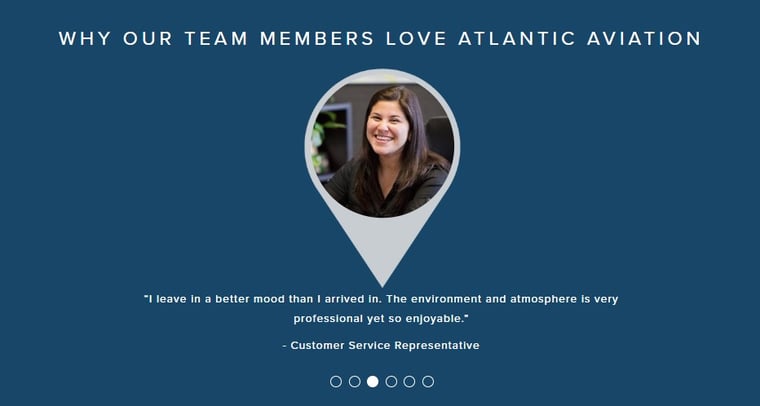Storytelling can play a crucial role in bringing your employer brand to life and making it more engaging for your target audience, whether it's potential employees, current employees, or customers. It’s important, but it’s also where a lot of companies get stuck when it comes to creating a narrative that reflects culture, mission and values (AKA “the trinity” of your employer brand).
The process doesn’t have to be painful. The primary ways that storytelling can support your employer brand all have one thing in common: They give your job candidate audience a realistic idea of what it’s like to work for your company through the eyes of your current employees.
What Storytelling Does For Your Employer Brand
Create a Compelling Employer Brand Narrative. Storytelling allows you to create a narrative around your employer brand that can be used to attract top talent. This narrative can highlight your company culture, values, and mission, and demonstrate how they align with the goals and aspirations of your target audience.
 Source: Atlantic Aviation's Career Page
Source: Atlantic Aviation's Career Page
Provides a Human Touch. Stories have the power to create an emotional connection with people. By sharing stories of your employees, their experiences, and their achievements, you can give your employer brand a human touch that resonates with your audience. This helps potential employees to envision themselves working for your organization and current employees to feel more engaged and connected to the company.
Communicate Your Brand Values. Stories can help you communicate your brand values in a more impactful way than a list of corporate values ever could. By sharing real-life examples of how your employees are living out these values, you can make them come to life and demonstrate to your audience that they are more than just words on a page.
Enhance Your Company's Reputation. Sharing stories about your company's achievements, milestones, and community involvement can help enhance your reputation as an employer of choice. This can help attract top talent and make your organization more desirable to work for.
The Importance of Collecting Stories From Your Top Performers
One of the key areas that many companies get stuck when creating an employer brand narrative through storytelling is how they can identify and collect employee stories. Talentcare recommends surveying current employees and building on that information to get started.
Charles Stephens, Director of Employer Brand for Talentcare says that “One of the most important pieces is creating a survey that is asking your employees:
- what their experience is like?
- what they're enjoying?
- what they're struggling with?
- why they love your company?
- why they choose to stay with you?
This helps to pull out some of the stories. So when you talk one on one with your employees, you can start collecting those anecdotes, those quotes that start to flesh out not just what a company loves or what an employee loves about the company, but how that connects with their life.”
 Source: Atlantic Aviation's Career Page
Source: Atlantic Aviation's Career Page
Stephens adds, “For example, if somebody can say that they love the flexible schedules that their company offers and we can see that in the company's survey. But when you speak with them one on one, they'll tell you that. And then they'll also tell you what that enables them to be able to do, that having that flexible schedule allows them to go hiking on the weekend with their kids or volunteer at their favorite charity that's only open on Tuesdays or Wednesdays. So when you start to flesh out those pieces, you get a sense into more of the emotional side of a company and its people and what really drives them. So the story drivers are ultimately what candidates connect with – those deeper, more personal elements that can be dug out in that research and discovery process.”
Storytelling is a powerful tool that can help bring your employer brand to life and make it more engaging for your job seeker target audience. By creating a compelling narrative, providing a human touch, communicating your brand values, and enhancing your company's reputation, storytelling can help you attract and retain more of the right talent and build a strong employer brand.
